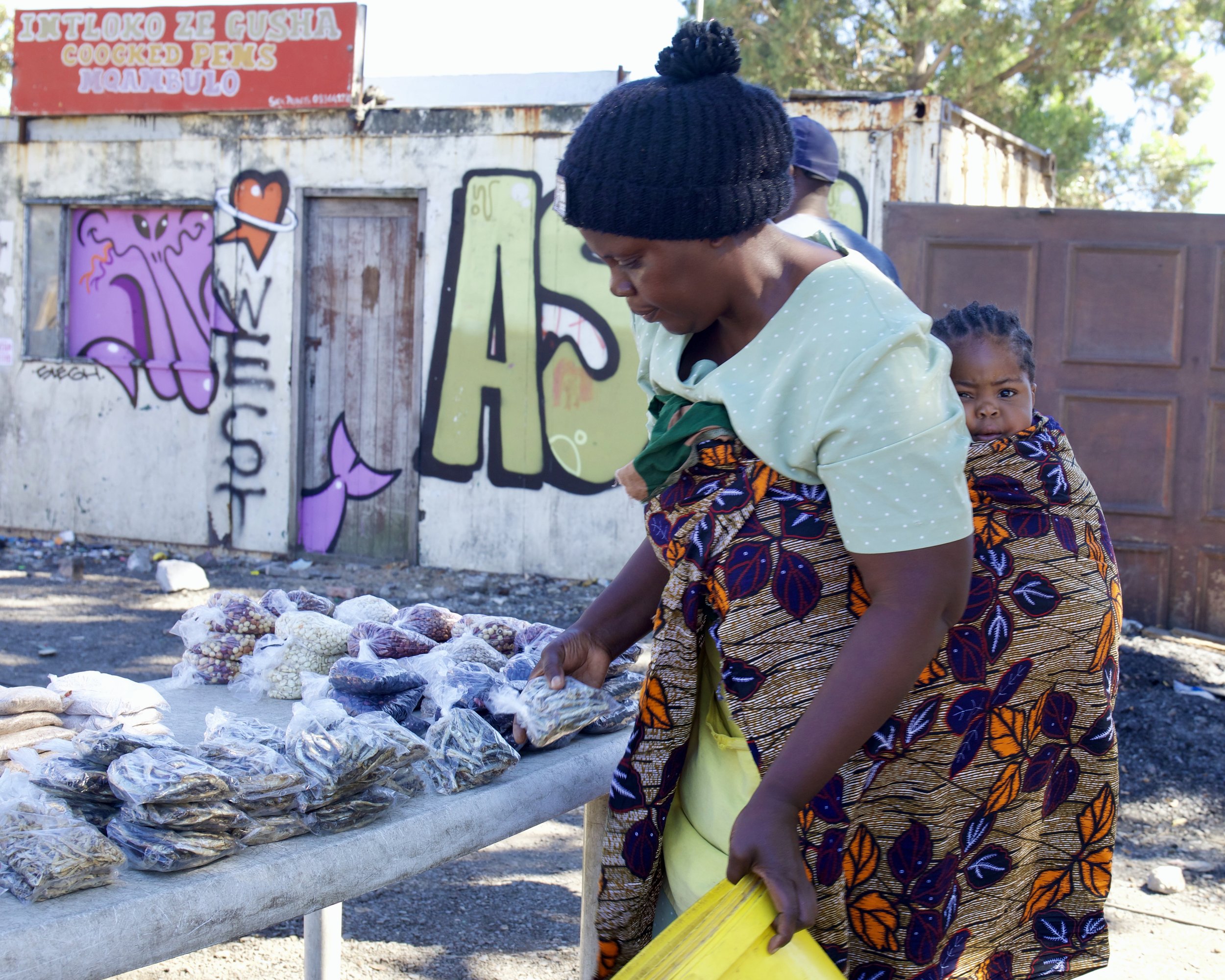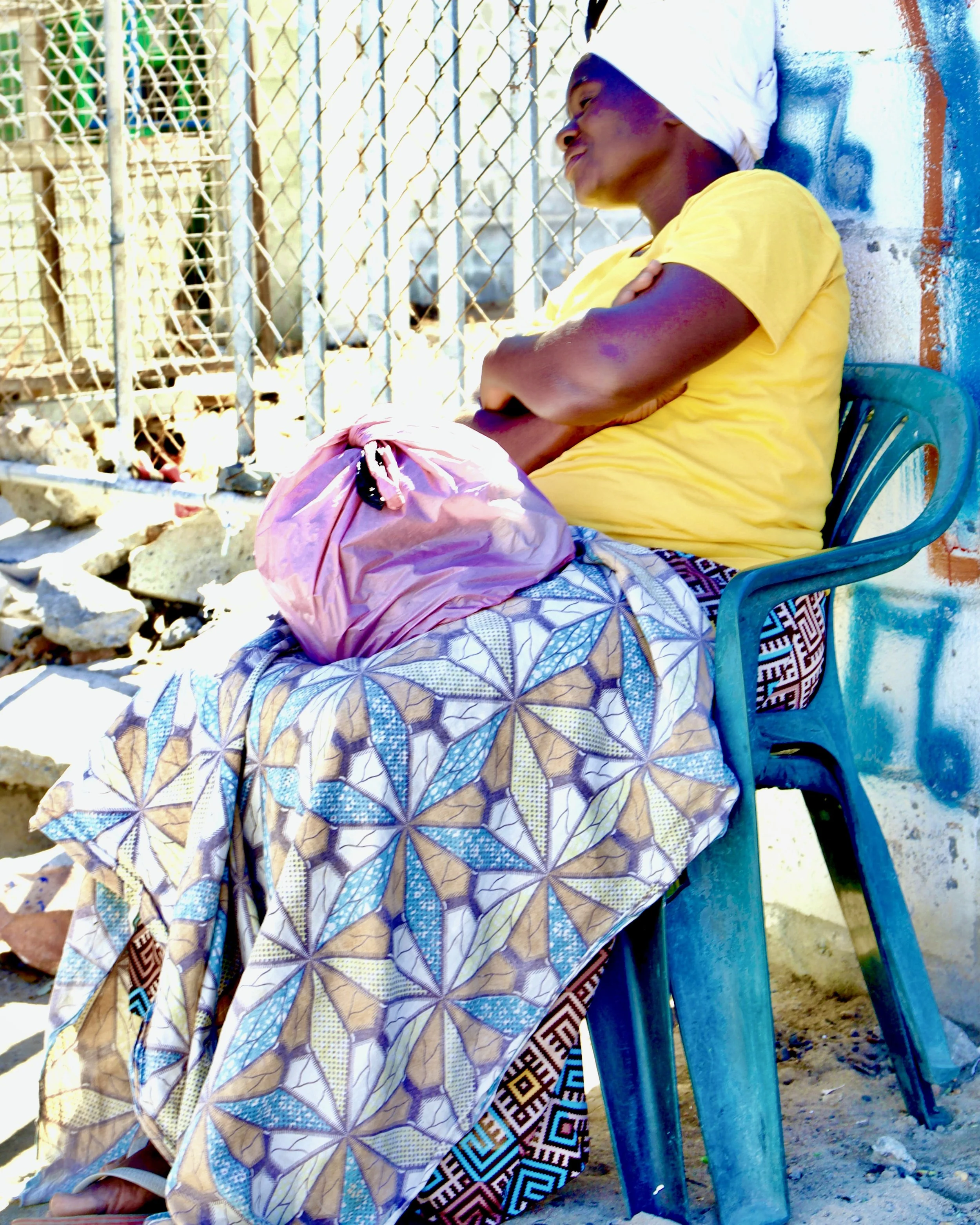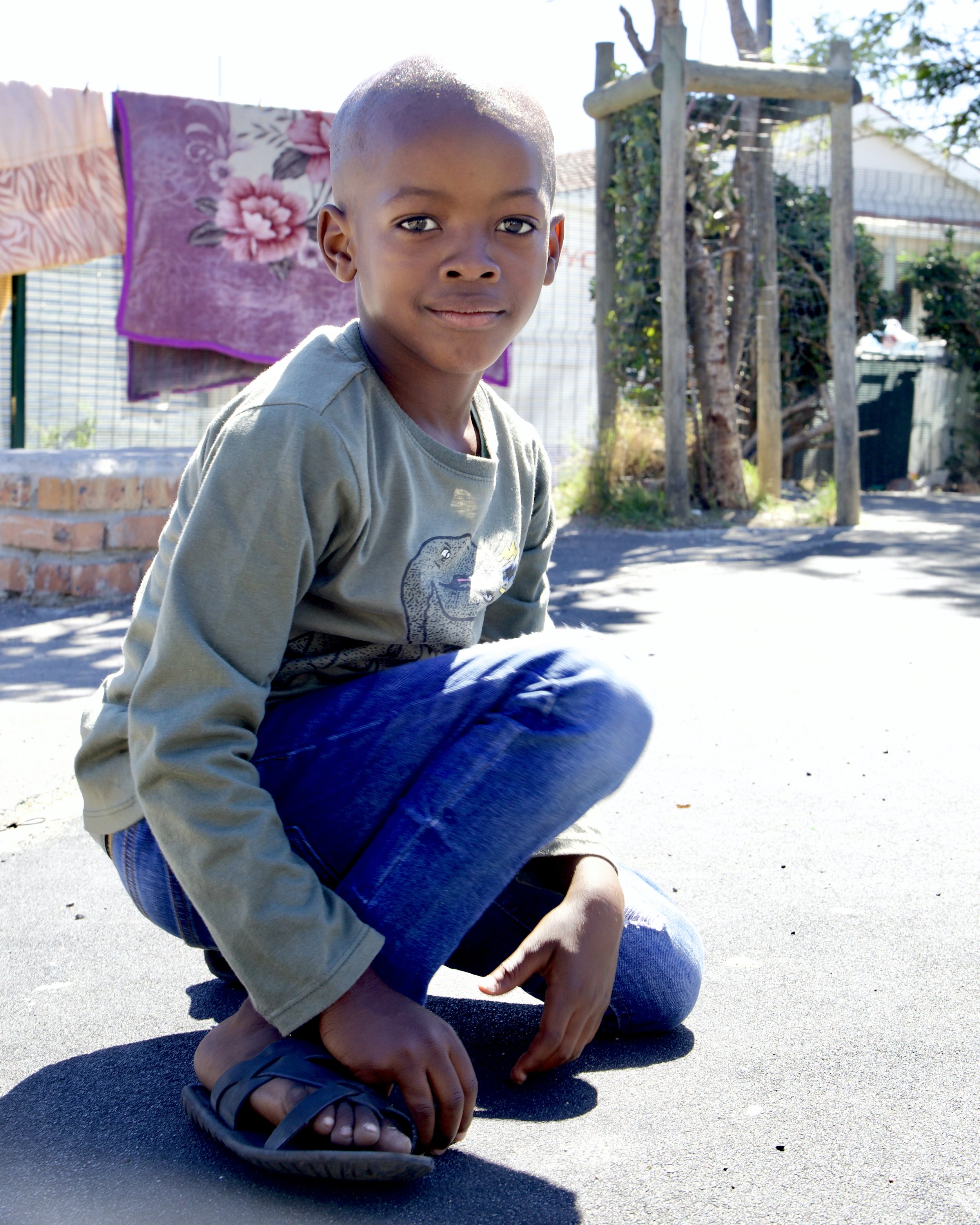Masiphumelele
Masiphumelele, South Africa
I stayed in the town of Capri, South Africa about a quarter of a mile from the township of Masiphumelele (Masi) near Cape Town, South Africa.
Masi was initially known as Site 5, and the township was later renamed Masiphumelele by its residents which is a Xhosa word meaning “let us succeed” (a Nguni Bantu language and one of the official languages of South Africa and Zimbabewe.)
My first humanitarian project, Ubuntu Center, is situated in the Masi township where I often visited taking photographs to promote this center for funding for after school programs for the children.
A Brief History
Masiphumelele is a township on the Cape Peninsula, South Africa, situated between, Kommetjie, Capri Village, and Noorhoek.
About 400-500 people first settled in this area during the 1980s. During apartheid residents were continually removed to the suburb of Khayelitsha, over 30km away, the numbers began to grow as apartheid began to unravel from 1990.
In 1990, about 8000 residents lived in the area, mostly in shacks, but by 2005, over 26000 people lived there, many in brick homes. In 2010, the population was estimated at 38000 many of which are from the old Ciskei Ciske bantustan in the Eastern Cape.
February through April 2021
Amenities in Masi are scarce, with an overcrowded school, no police station, high crime rates and an understaffed day clinic. It is estimated that 30-40% of the men, women and children are with HIV (off the record estimated is 70%) and/or TB.
Besides the high crime rate, many families do not have enough food for their children (see Ubuntu Center Story). Many houses are very poor, high electricity rates, difficult winter months (no heat) and the living conditions are extremely hard.
Masiphumelele has been the site of numerous protests over the years. Most of the protests have been connected to service delivery and anger over corruption in government housing projects.
My second night on a Tuesday morning in February 2021, around 2:30AM I witnessed from my baloney my first protest with police sirens, men yelling on the highway below me, with popping sounds sounding like gun fire. Later I learned the sounds that I had heard were smoke bombs that police were shooting up in the air to try and disperse the crowds.
I read later the city vehicles were stoned and damaged, tires and bins were set alight and used to block the roads on that night and into the early hours of Wednesday morning. This wasn’t the first time a highway was blocked due to a protest. Because of the peninsula in the area I live at there wasn’t many options on how to get north to West Cape Town.
The city's law enforcement officers had to deal with incidents of sustained civil disobedience. Law enforcement and Metro officers were forced to withdraw to the outskirts of the area for their own safety. No arrests were made but charges of public violence, intimidation and damage to public property were laid.
This was the first of several protest which I witnessed, and during one of the protest gunfire was heard. No one I am happy to say was hurt in any of the protests during my stay in South Africa.
I won’t write here the details of the protests, however these protest started because of a massive fire that ripped through an informal settlement in December of 2020, leaving hundreds of people homeless. Since then, many, but not all of the fire victims were assisted and were provided with temporary homes on two sites in the area.
Masiphumelele residents affected by the 2020 massive fire may have to wait up to two years before they can get a home promised by the government.
The protest where about the government, building these temporary homes on Masi’s soccer field. The town is very much into soccer, and I saw many young boys play soccer up and down the street.
The protests are about the citizens do not believe the houses on their soccer field would be temporary based on their experience with the government. Therefore, the protest.
Here in story on my blog, will show city life of the people in the township of Masiphumelele.
Local Businesses and at the People who live here
Sam
Local Art originally from Zimbabwe
Children






























